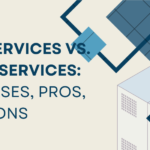In the ever-evolving landscape of digital marketing and search engine optimization (SEO), the integration of Artificial Intelligence (AI) technology has already begun to revolutionize the way businesses connect with their audiences. As AI continues to advance, it is expected to play a pivotal role in reshaping the future of these industries. In this blog, we will explore the various ways AI is transforming digital marketing and SEO and discuss the potential benefits and challenges that lie ahead. Company like Digital Pundit is offering Complete Digital Marketing Course, and affordable SEO Course in Ahmedabad.
Personalized Customer Experience
One of the most significant contributions of AI in digital marketing is its ability to deliver personalized customer experiences. AI-powered algorithms analyze vast amounts of data to understand individual user preferences, behaviors, and interactions. This data-driven approach enables businesses to tailor their marketing strategies to resonate with specific target audiences. From personalized product recommendations to targeted email campaigns, AI can help create a more engaging and relevant customer journey, leading to higher conversion rates and customer satisfaction.
Enhanced Content Creation and Curation
Content marketing is a crucial aspect of digital marketing, and AI is making significant strides in this domain. AI-driven content creation tools can generate articles, blog posts, and even social media posts with high accuracy and efficiency. While human creativity remains unmatched, AI can assist content creators by providing data-driven insights, generating topic ideas, and optimizing content for SEO. Additionally, AI-powered content curation tools can help marketers identify and share relevant content from across the web, improving engagement and establishing thought leadership.
Search Engine Optimization (SEO) Revolution
AI has already transformed the way search engines rank and display search results. Google’s AI algorithm, RankBrain, is a prime example of this. Rank Brain uses machine learning to interpret and understand user queries, leading to more accurate search results. As AI continues to evolve, SEO strategies will shift from traditional keyword-centric approaches to a more context-driven approach. Understanding user intent and providing valuable content will be paramount in optimizing for AI-powered search engines.
Voice Search and Virtual Assistants
The rise of AI-powered virtual assistants and voice-activated devices has reshaped how people search for information. Voice search is becoming increasingly popular, and businesses must adapt their SEO strategies accordingly. Voice search queries tend to be more conversational, reflecting the natural language used in daily interactions. To stay ahead, marketers will need to optimize their content for voice search, focusing on long-tail keywords and providing concise and clear answers to user questions.
Read another: Technology Blog
Data-Driven Decision Making
Data is the backbone of AI technology, and its integration in digital marketing enables data-driven decision making. AI algorithms can analyze vast amounts of data in real-time, providing marketers with valuable insights into customer behavior, campaign performance, and market trends. This data-driven approach empowers marketers to make informed decisions, optimize campaigns on the fly, and allocate resources more effectively.
AI-Powered Advertising
AI is set to revolutionize digital advertising by making it more efficient and cost-effective. AI-driven advertising platforms can target specific audiences with pinpoint accuracy, based on user behavior, demographics, and interests. This level of precision minimizes ad spend wastage and maximizes the return on investment (ROI). AI can also optimize ad creatives in real-time to ensure maximum engagement and conversions.
Challenges and Considerations
While the future of digital marketing and SEO with AI technology holds immense promise, there are some challenges that marketers and businesses need to be aware of:
Privacy Concerns: The use of AI in digital marketing often involves handling vast amounts of personal data, which raises concerns about privacy and data protection. It is crucial for businesses to prioritize data security and comply with relevant regulations.
AI Bias: AI algorithms can sometimes exhibit bias based on the data they are trained on. To avoid unintended discrimination, marketers must ensure that AI-powered systems are designed with fairness and inclusivity in mind.
Human Touch: While AI can automate many processes, human creativity and emotional intelligence remain essential in creating authentic and meaningful connections with customers. Balancing AI automation with a human touch will be critical in the future.
Conclusion
The future of digital marketing and SEO Services with AI technology promises a new era of efficiency, personalization, and data-driven decision-making. AI-powered tools will continue to redefine how businesses connect with their audiences, optimize content, and advertise products and services. Firms using AI-driven analytics and data platforms are providing businesses with the tools for gathering, analyzing, and using customer data in real time. AI-powered content creation companies are also among the top martech companies busy revolutionizing content creation so SEO-friendly content can be produced at scale.
However, it is essential to approach AI implementation with caution, considering potential challenges such as privacy concerns and AI bias. By leveraging the strengths of AI while preserving the human touch, marketers can pave the way for a successful and innovative future in the digital landscape.




Comments
0 comments